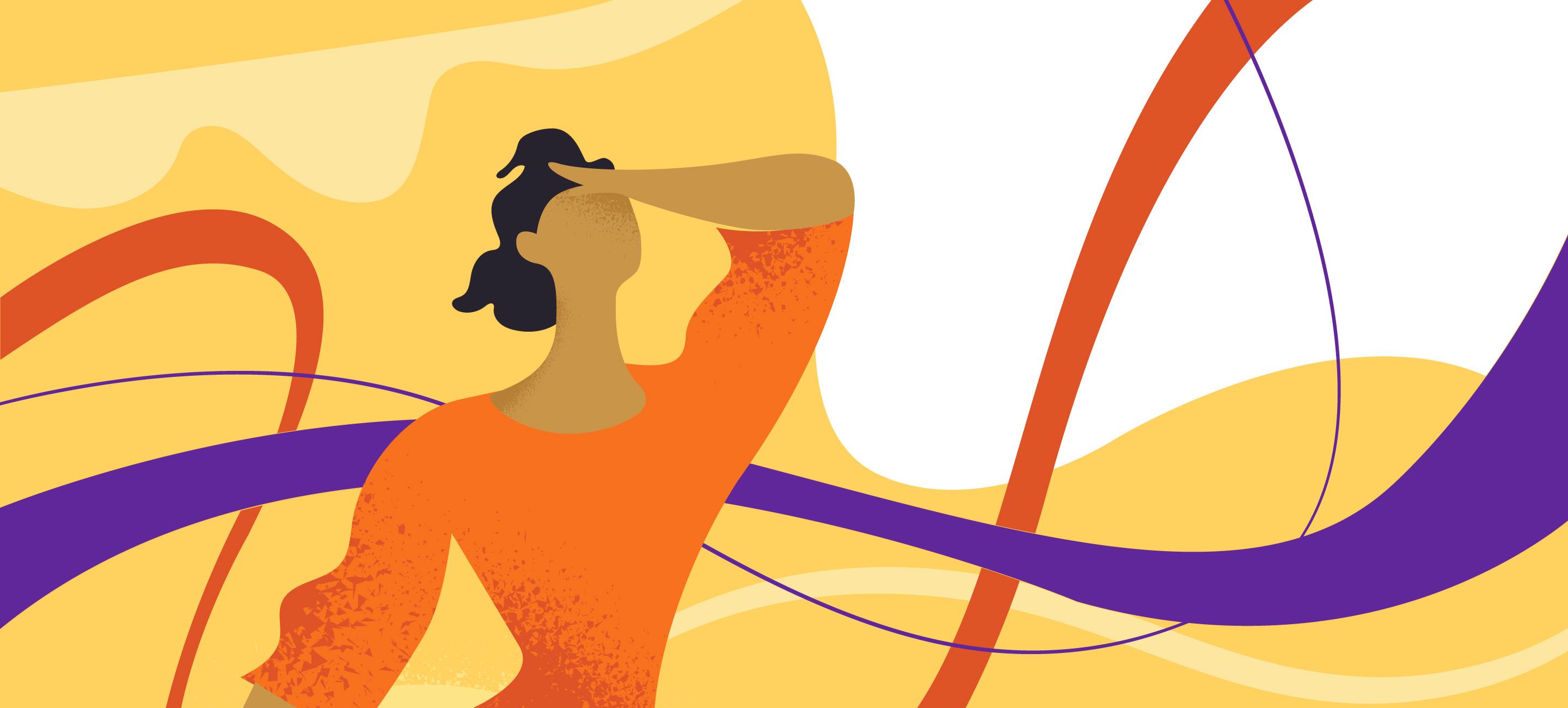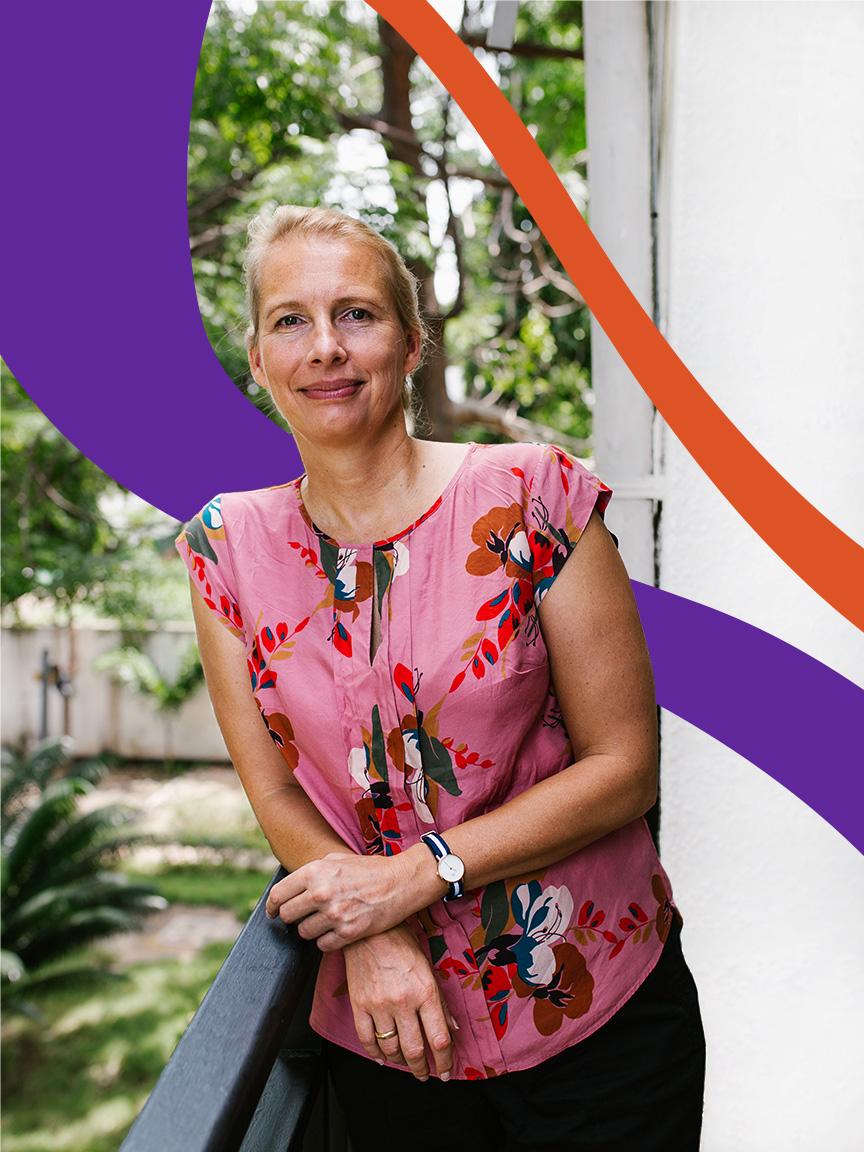
Feminist development policy: clear goals and a clear stance
BMZ adopted its feminist development policy strategy a few months ago. Annette Mummert explains why this is important and what it means for GIZ’s work.
At first glance the connection is simple: if women and girls – half of society, after all – do not have a fair share in economic progress, if they are more likely to be afflicted by poverty, less likely to go to school, have poorer medical care and have less scope to take decisions, then enormous opportunities are lost – opportunities that would ultimately enrich the whole of society, were they to be taken. And, by the way, opportunities that are essential for achievement of the SDGs.
Vast numbers of reliable studies have looked at this causal link, ranging from PwC’s Women in Work Index and the World Economic Forum’s Global Gender Gap Report to various investigations by UN Women, to name but a few. So there is no shortage of knowledge. Nor is it a new idea any more than it is new for development cooperation to advocate gender equality. To begin with, the focus was on promoting women and girls. Since the UN’s World Conference on Women in Beijing in 1995, we have pursued a broader approach (gender mainstreaming). Ever since then, each project has been examined and classified according to its impact on gender equality.
Why, then, is there a need for a feminist development policy? What extra benefit does it offer compared to our previous practices? The difference is – and this is where it becomes more complex – that causes of structural inequalities will now be addressed. This means, for example, that patriarchal structures are placed under greater scrutiny in their interrelationship with other structures with inequalities. As a consequence, our work on gender equality is now being more firmly embedded in a generally power-critical approach that looks behind the scenes, reveals the balance of power and seeks to change it. The same applies to development cooperation itself.
Tackling discrimination wherever it occurs
The concern is therefore discrimination in all sections of society. Women and marginalised people are not uniform groups. As individuals, they are often affected by more than one form of discrimination at the same time. Apart from gender, it is also people’s background, skin colour, religion, (non-)disability and/or sexual orientation that determine their opportunities for personal development within a society. These interrelationships become apparent in a feminist development policy. It thus broadens the focus into an integrated and comprehensively human rights-based approach.
What exactly this means in practice is something we are currently working on at GIZ. With this in mind we want to build on and further expand our expertise, for instance with regard to approaches that can be used to improve the way the underlying power structures are addressed. To achieve that, participatory approaches and ‘new’ or stronger alliances, such as with civil society, could become even more important in future. The aim might then be to disrupt existing roles, for example. The desired societal change can only come about if men are more closely involved.
Rights, resources, representation
What is also clear is that there will be an even greater focus on the ‘three Rs’: rights, resources and representation. It is not enough to mainstream equal rights for everyone in law if women or other marginalised groups still do not have access to bank loans or land. They need resources. Access becomes more likely if women become actively involved in school committees, local councils and parliaments. This is why further progress is required in all three Rs in equal measure.
The orientation on rights, resources and representation is already playing a part in our projects. We have a regional programme on preventing female genital mutilation in East Africa, for example, that helps women and girls to become aware of their rights and learn to assert them (rights). In Kenya we are helping women find jobs in the traditionally male-dominated construction sector through training courses (resources). And in Ethiopia, Somalia and Sudan we are supporting feminist civil society organisations so that women can increase their participation (representation).
More than ‘merely’ promoting women
Clear targets set by BMZ – in future 93 per cent of all funds are to be channelled into projects that contribute either directly or indirectly to gender equality – mean that GIZ’s work will change, too. We will build on what has been achieved in the past and continue this work with a feminist orientation.
The best way we can do this is by achieving good results in our work. In addition we intend to make our practical experience even more freely available for our commissioning parties’ political dialogue. This will enable Germany to take a clear stance in a turbulent world in which democracies are faltering, autocracies are on the rise, human rights are called into question and there is a threat of rollbacks in all parts of the world. This is exactly why feminist development and foreign policy is so much more than ‘merely’ promoting women.

Until recently, Annette Mummert headed a group of regional projects in Africa covering governance and gender, among other topics. She is now Director of the Governance and Conflict Division in the Sectoral Department.